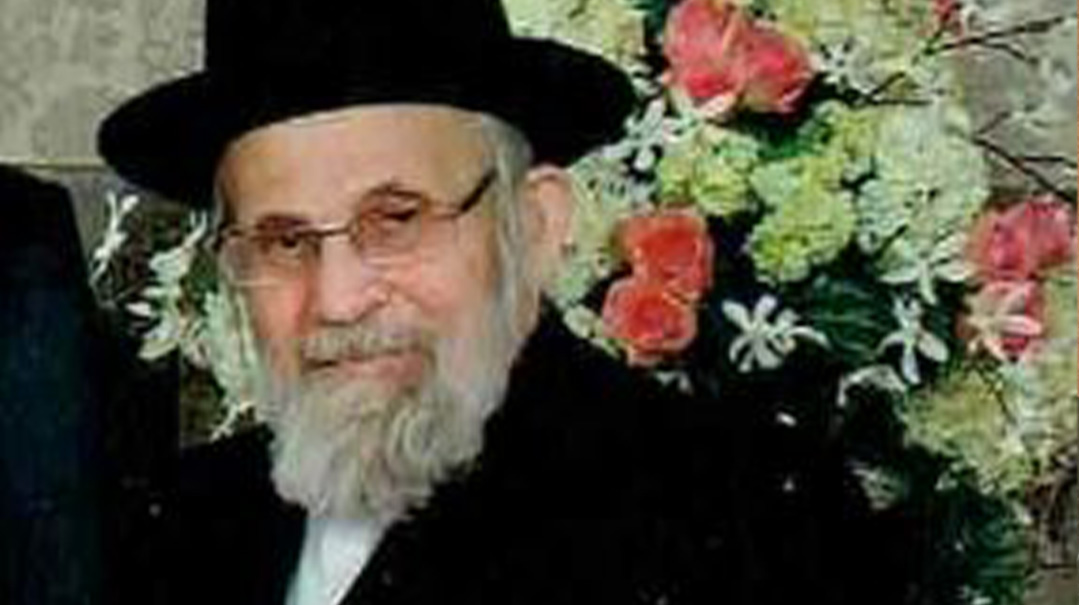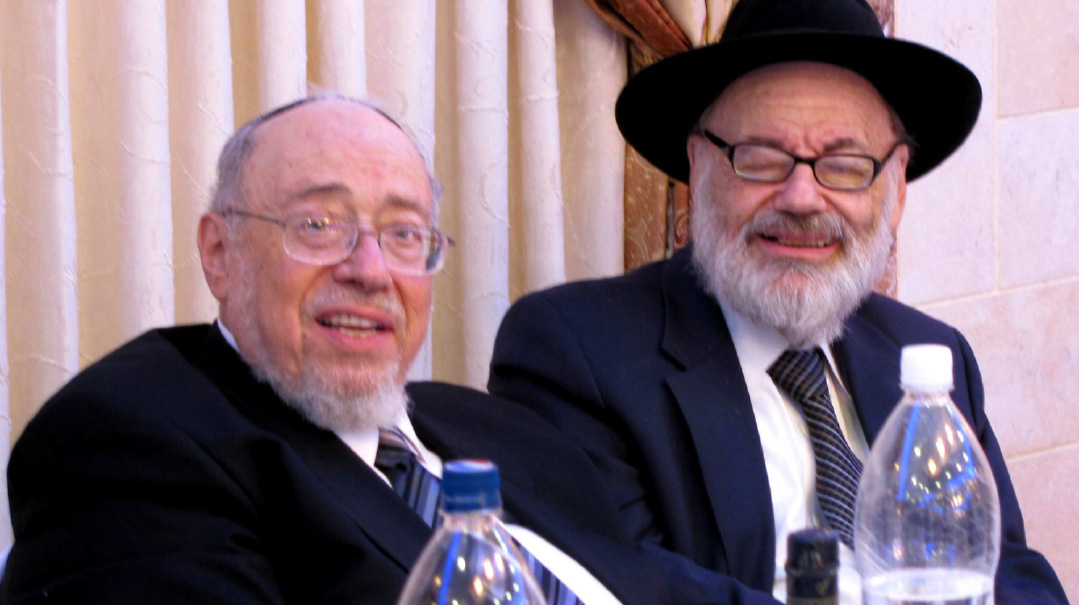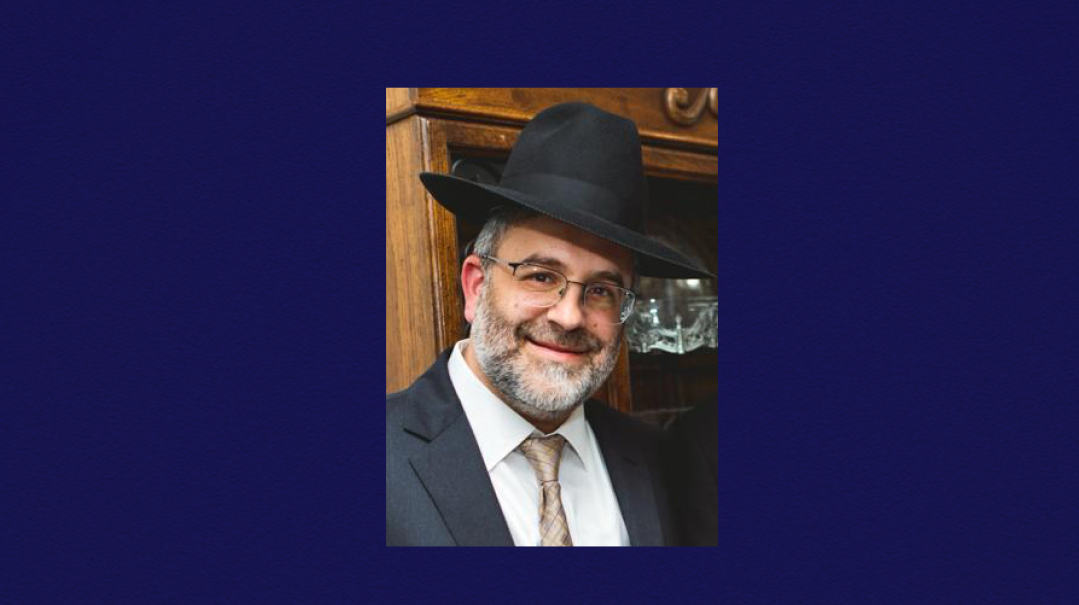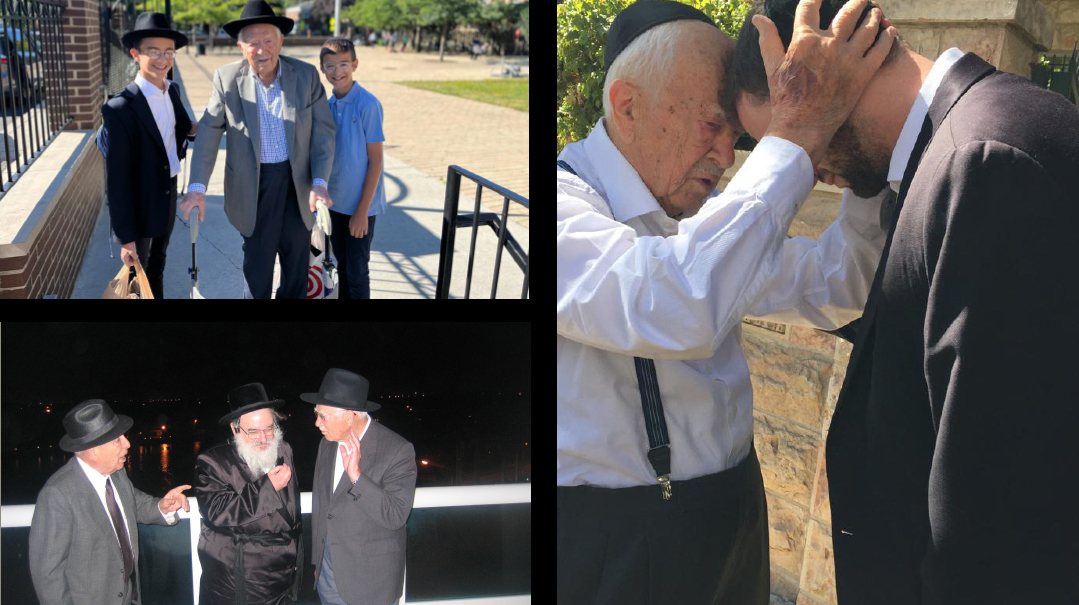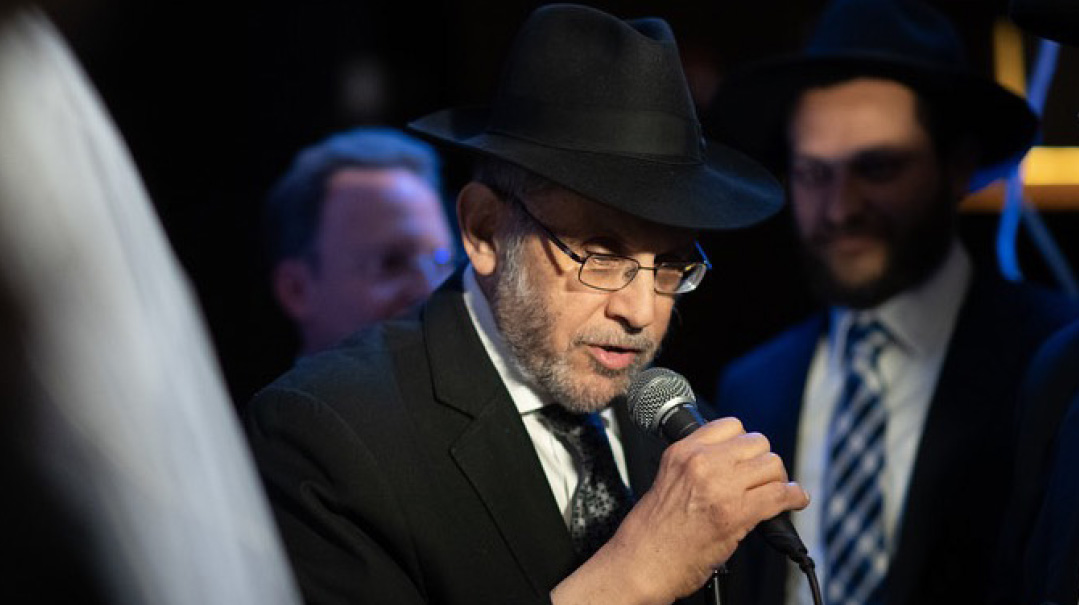In His Sight
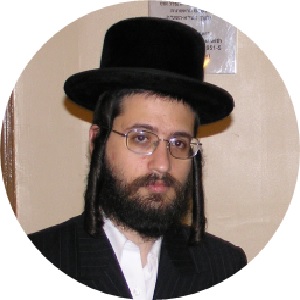
In tribute to Rav Dovid Moshe Lieberman
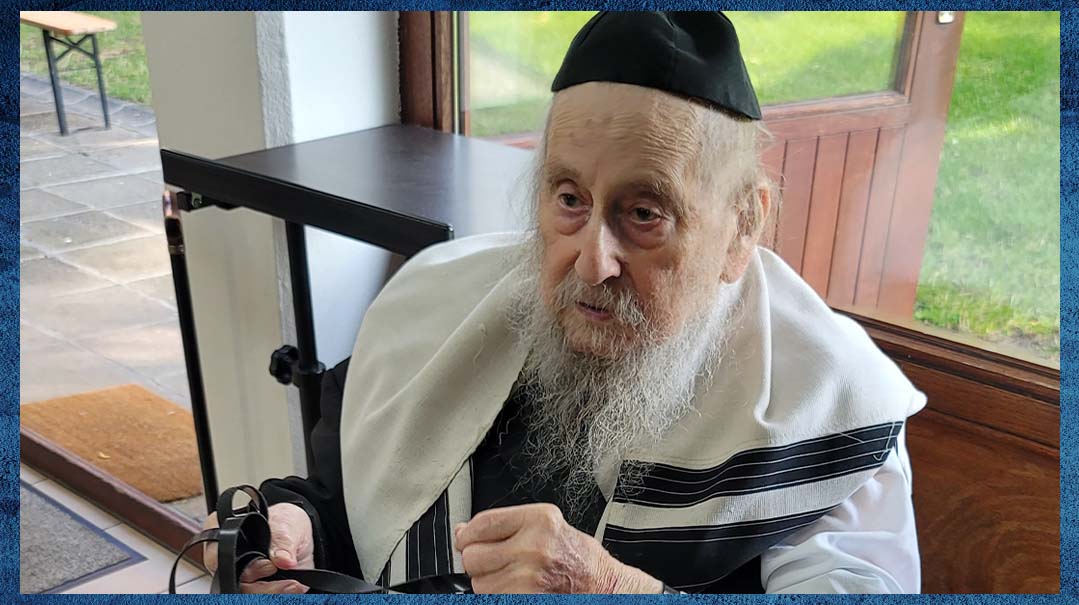
Drops of rain fell on the crowd of thousands last week, but they just blended in with the tears of the mourners escorting the aron of Rav Dovid Moshe Lieberman ztz”l, longtime rav of the Shomrei Hadas community in Antwerp. Rav Lieberman was no youngster — he was 96 — yet we couldn’t imagine the city without him. When he spoke, there was no reason to hush the crowd — no one wanted to miss his deep insights, his profound yet clear Torah messages, his phenomenal oratory skills in the many languages he spoke fluently and with captivating charisma.
But more than all that, he carried on his shoulders not only the burden of the people, but also a rare historical burden. He straddled both the prewar and postwar years, a bridge between a nearly obliterated past and a remarkable rebirth. He was born in Germany, grew up in Antwerp, landed in France during the war, spent decades in Chicago and Detroit, and finally returned to Antwerp in 1981, where he became rav and av beis din of Shomrei Hadas, one of the leading rabbanim in Europe and founder of the Conference of European Rabbis.
Rav Lieberman connected the rest of us to the Torah giants of prewar Europe. He was tested by Rav Elchanan Wasserman, studied under Rav Mordechai Pogramansky. And as a chassid of the Rebbe Rayatz of Chabad, he witnessed the transformation of Jewish life around the world through the shluchim of the Lubavitcher Rebbe, whose ranks included many of his own children and grandchildren.
During the times I merited to meet with him, I always marveled at his sharp mind, his remarkable breadth of knowledge in all parts of Torah, and his deep wisdom and clear Torah hashkafah in all areas of life. At one point, we sat down for a lengthy interview, where I got a glimpse of his early life and the experiences that molded him.
His parents had come to Cologne, Germany, from Galicia, where many Jews had gathered in those years. His mother, Sarah Hinda, was a granddaughter of the Ari Debei Ila’i and of Rav Naftali of Ropschitz, and his paternal grandfather, Rav Yitzchak Eizik, was a yoshev in Sanz, one of the renowned figures of chassidic Galicia.
When Dovid Moshe was one year old, they moved to Antwerp. “My father tried to get into the diamond trade, but, as a talmid chacham, proficient in all of Shas, he found himself teaching Torah instead,” Rav Lieberman related. “I went to learn in the community cheder, Yesodei HaTorah, until I was ten, when I was sent to learn under Rav Mordechai Rottenberg, the rav of the Machzikei Hadas community. I studied all of Maseches Bava Basra with him.”
This young, humble illui was actually Rav Rottenberg’s chavrusa; Rav Rottenberg recognized his brilliance, and by age 12, young Dovid Moshe was sent to Yeshivas Eitz Chaim in Heide, the only yeshivah in Belgium at the time, headed by Rav Shraga Feivel Shapira. His maggid shiur was Rav Pogramansky.
Young Dovid Moshe remained in the yeshivah for five years, but then the war broke out. At the time, Rav Lieberman’s father was in the UK, where he was able to survive the war, while Rav Lieberman fled with his mother and three younger siblings to France. But the family was captured and taken to concentration camps — his mother in one camp and he and his siblings in another. Sarah Hinda Lieberman was given permission to visit her children, yet she always returned from there to the camp she was in.
When she was once asked why she didn’t take advantage of the chance to escape, she answered, “If I flee and don’t come back, they will never let parents leave to meet their children again.”
Rav Lieberman’s siblings were eventually rescued and sent to America, and he, too, was later able to escape.
“The guard duty in the camp was pretty lax,” he related, “and so I fled to the home of my uncle, Rav Shmuel Dov Lipschitz, and from there, I sent food packages to my mother. I spent a year and a half with my uncle.”
Toward the end of the war, his mother was deported to Auschwitz, where she perished.
The Rav shared what kept him going through that time: “I had a small Gemara with Maseches Zevachim and Menachos, which the Shotzer Rebbe sent me from London. Throughout the war, I had it with me. It was my lifeline.”
The war came to an end, and in 1946, the family was reunited in America. While still a refugee in Marseille, Rav Lieberman joined the yeshivah of Rav Shneur Zalman Schneersohn, where he survived the end of the war and also grew close to Chabad. Rav Zalman Schneerson, meanwhile, also moved to America, and his influence on the young talmid chacham created a close connection with Lubavitch chassidus and with the Rebbe Rayatz (Rav Yosef Yitzchok Schneersohn, the sixth Lubavitcher Rebbe), who arrived in the US in 1940.
Lubavitch became Rav Lieberman’s second home; and when the Rebbe’s son-in-law became Rebbe, Rav Dovid Moshe was among the prominent chassidim. At the same time, he studied in Yeshivas Chaim Berlin and then in Lakewood, under Rav Aharon Kotler. This blend of chassidic warmth and litvish machshavah were two facets that framed his Torah and avodah all his life.
In 1949, Rav Lieberman moved to Chicago, where he served as a rav and mechanech until 1967, when he moved to Detroit to serve as a principal in Yeshivah Beis Yehudah. In 1981, he moved back to Antwerp and assumed the position of the rav and av beis din of Shomrei Hadas, although he was a beloved presence in all of Antwerp’s kehillos.
Sadly, Rav Lieberman’s eyes began to fail him some 15 to 20 years ago. Yet, says his grandson Rabbi Mendy Chitrik, rabbi of the Ashkenazi Jewish community of Turkey and chairman of the Alliance of Rabbis in Islamic States, “He may have lost his eyesight, but he never let go of his vision.” He would wistfully point to his bookcases containing his thousands of seforim and say, “These are my best friends, and I cannot even see them.”
Nevertheless, an avid follower of the latest technologies, the Rav owned an array of machines that would read to him from his cherished “friends.” And that was in addition to the many chavrusas who came to study with him each day. Almost until his final day, he delivered shiurim in Gemara, halachah, and hashkafah. His Shabbos shiurim on Pirkei Avos drew hundreds of people from all over the city.
“I met him a few months ago,” related Rav Aharon Schiff, rav of the Machzikei Hadas kehillah. “I wished him renewed strength, frishe kochos, but he told me modestly, ‘Before I ask for new strength, I need to know that I fully utilized the strength I was given until now.’ ”
Rabbi Mendy Chitrik says that when people ask him to describe his venerated grandfather, it’s not easy. “It’s not often that I’m stuck for words, yet every time someone asks me to describe my grandfather, I find myself caught off guard. He was so multifaceted, it just seems impossible to distill his unique personality into a few paragraphs.
“But one thing I can say: His sharpness was matched only by his gentleness, his brilliance shined through his humility, and his unique independent mind somehow brought everyone together.”
Rabbi Chitrik says it was a pleasure to learn with him, “until you inevitably made a mistake, that is. Never missing a beat, he would pick his study partners up on the smallest errors. We had the sefer in front of us, and he was reading blind, but he always seemed to see things better than those of us reading to him.”
Rav Lieberman’s depth and breadth of knowledge provided him with an incredibly incisive perspective on the world, something that came through in his famous speeches. That’s why, no matter what the event, if he was on the speaking roster, no one had to shush the crowd.
A day before his passing, he returned home after a long hospitalization. But just a day later, he davened Minchah, asked for a cup of water, made a shehakol, and returned his soul to its Maker. Antwerp has lost its crown, European Jewry has lost one of its prized sons, and world Jewry is now bereft of one of its finest rabbanim and one of the last remnants of the last generation.
—Yochonon Donn contributed to this report
(Originally featured in Mishpacha, Issue 897)
Oops! We could not locate your form.
